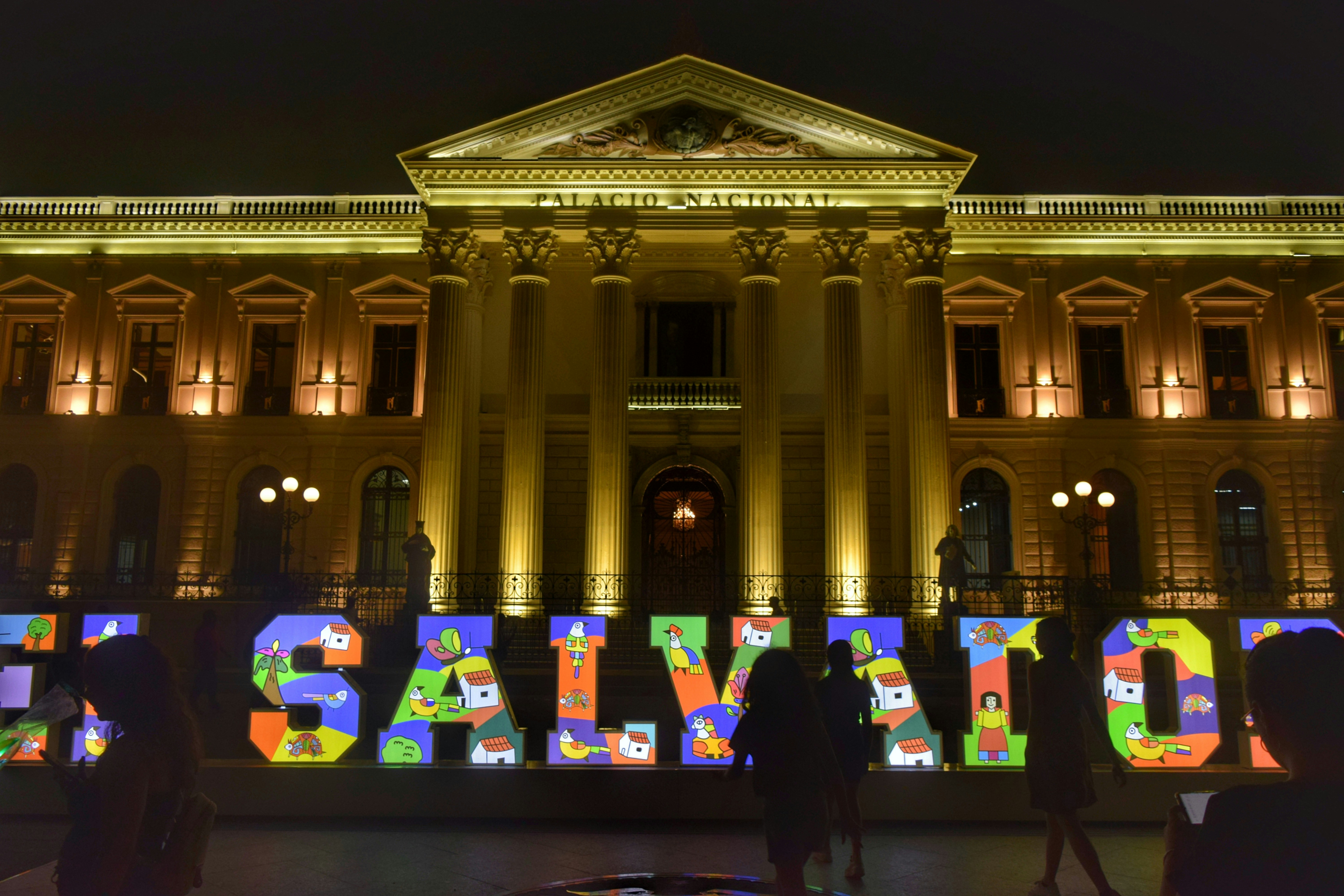El Salvador Digital Nomad Visa
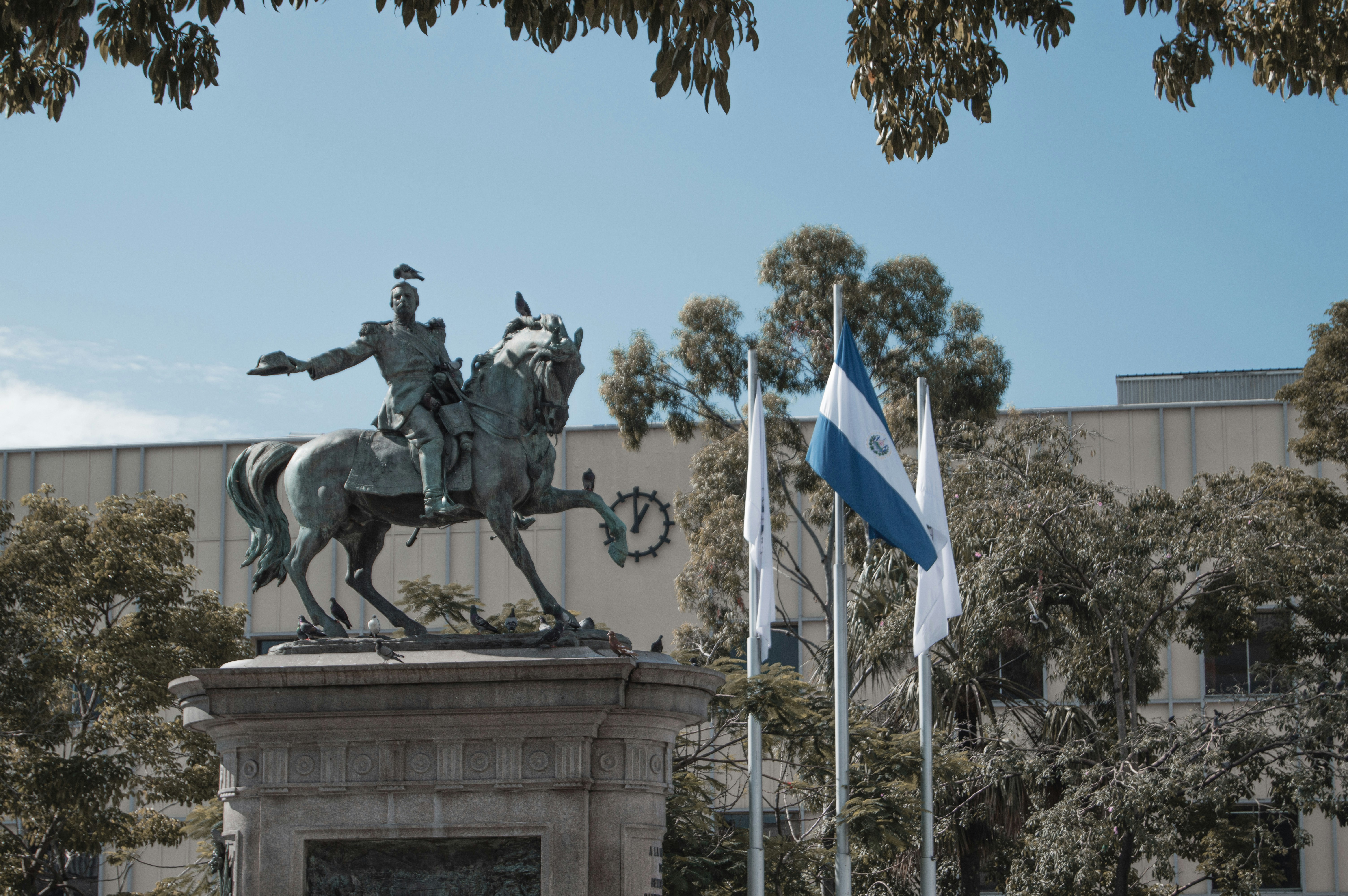
Quick Visa Facts
Visa length 1 year
Possible to extend? Yes, up to 4 years total
Who can apply? Remote workers, freelancers, and entrepreneurs with foreign income
Minimum Income Requirements Approximately $1,460/month for a single applicant
Time for visa applications Around 45 days
Want to know if you can apply?
Complete a visa quiz and see if you qualify!
Imagine trading your office walls for ocean views, cobblestone streets, and vibrant tropical sunsets. El Salvador, once a hidden gem in Central America, is quickly becoming a hotspot for remote workers and entrepreneurs seeking a blend of adventure, affordability, and connectivity.
With the new El Salvador Digital Nomad Visa, you can legally live in the country while working remotely for a company or clients abroad. Whether you’re a freelancer, startup founder, or remote employee, this visa opens the door to a flexible lifestyle in one of Latin America’s most exciting up-and-coming destinations.
In this guide, we’ll cover everything you need to know, from eligibility requirements and application steps to taxes, lifestyle, and the benefits of calling El Salvador your temporary home.
El Salvador Digital Nomad Visa Overview
The El Salvador Digital Nomad Visa is a newly-launched residence permit aimed at remote workers who wish to live in El Salvador while working for a company or clients outside the country. According to multiple sources, the program officially came into effect in April 2025.
It gives approved applicants the legal right to reside in El Salvador for 12 months initially, with renewals available that could extend the stay up to four years.
The initiative is part of the country’s effort to attract international digital nomads by offering tax-friendly policies, affordable living, and the chance to base oneself in Central America.
Who Is It For?
This visa is designed for:
Remote employees working for companies based outside of El Salvador.
Freelancers or independent contractors with clients located abroad (i.e., outside El Salvador).
Entrepreneurs whose business is not tied to a Salvadoran employer or primarily serving the local Salvadoran market.
Individuals (and in many cases their dependents) seeking to relocate temporarily to El Salvador for lifestyle, cost-of-living, or strategic reasons, while still maintaining income from abroad.
What Does It Allow You to Do?
Under this visa program you are allowed to:
Reside legally in El Salvador for the duration of the approved visa period (initially 12 months, renewable up to a total of around 4 years in some cases).
Work remotely for a non-Salvadoran employer or service overseas (i.e., you are not engaging in local employment for a Salvadoran company).
Bring family members in many cases (spouse and/or children) under the same permit, given that the applicant fulfils supporting requirements.
Benefit from favorable tax/policy conditions: for example, foreign-earned income is generally not subject to Salvadoran income tax under this regime (when the income is from outside the country).
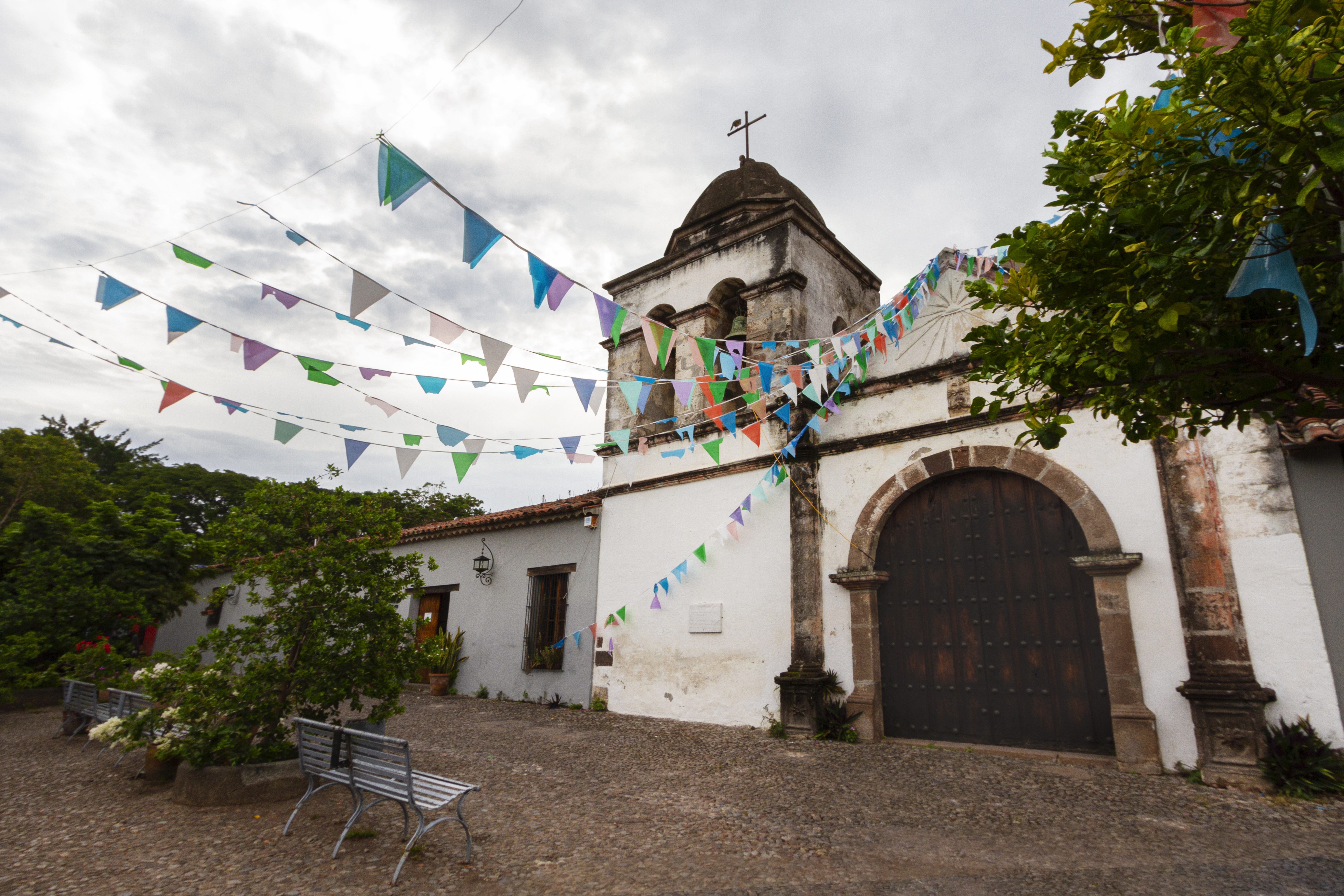
El Salvador Digital Nomad Visa Requirements
To apply for the El Salvador Digital Nomad Visa you will need to assemble a complete set of documents. Below is a general checklist followed by detailed sections for the key special requirements.
Basic documents required:
Completed and signed visa application form (for you and any accompanying dependents).
Valid passport (copy of all pages) with at least 6 months remaining validity from the date of entry.
Recent passport-size photograph(s) as required by the consulate/immigration office.
Certified copy of birth certificate(s) for minor dependents, if any.
Certified copy of marriage certificate or affidavit of common-law union (if applying with spouse/partner).
Certificate of no criminal record (from the country of origin and any country of residence in the past 2 years).
Translation into Spanish (and apostille/legalization where needed) of any documents issued abroad.
Payment of the visa application fee (and any consular or processing fees).
Proof of Financial Self-Sufficiency
You must demonstrate that you have a reliable foreign-sourced income sufficient to support your stay in El Salvador. Some of the key criteria:
A minimum monthly income threshold of approx. USD 1,460 for a single applicant.
If applying with dependents (spouse/children), the minimum income requirement is higher.
Supporting documentation may include bank statements, an employment contract (if employed by a foreign company), business invoices (if freelancing), or a certificate from a financial institution showing income.
A sworn declaration, notarized in El Salvador, stating the origin of income and that you will not undertake paid work for a Salvadoran employer.
Proof of Remote Work (or Foreign-Source Income)
Since the visa is aimed at remote workers or freelancers with foreign clients/employers, you must show:
Employment contract or letter from a foreign employer stating your remote work arrangement for a non-Salvadoran company.
For freelancers or entrepreneurs: evidence of an active business registered (outside El Salvador) or invoices/clients from abroad.
That your income is generated from sources outside El Salvador, i.e., you are not entering the local labor market.
Private or International Health Insurance
Applicants must have a comprehensive international health insurance policy, valid in El Salvador for the full duration of the visa stay. The policy should cover you (and any accompanying family members) and ideally include evacuation or repatriation in case of emergency.
Ensure that the insurance is translated/localized as required and that it meets any minimum coverage requirements set by the authorities (if specified). Travel insurance is not accepted; it must be long-term residency health insurance. You can find our recommendations for the best health insurance plans for digital nomads here.
Clean Criminal Record
You will need a certificate or clearance showing you have no criminal convictions in your country of origin and in any country where you have lived in the past 2 years. The certificate must usually be issued within the last 6 months (or as stipulated by the immigration authorities) and may require apostille/legalization if issued abroad.

How to Apply for the El Salvador Digital Nomad Visa – Step-by-Step Instructions
Step 1: Check Your Eligibility
Before starting your application, make sure you meet all of the visa’s basic requirements. You must have a valid passport, a steady income from foreign sources that meets the minimum monthly threshold, and the ability to work remotely for an employer or clients outside of El Salvador. Verifying your eligibility early helps prevent delays or rejections later in the process.
Step 2: Gather All Required Documents
Next, collect every document you’ll need for your application. This typically includes your completed application form, a valid passport, passport-sized photos, proof of income, a clean criminal record, and private health insurance valid in El Salvador. Having all paperwork prepared in advance ensures a smooth submission process and shows immigration authorities that you meet all necessary conditions.
Step 3: Submit Your Application
Once your documents are ready, you can submit your visa application either through an El Salvador consulate in your home country or directly at the immigration office if you’re already in El Salvador under a valid tourist visa. During this step, you’ll hand in your forms, provide supporting documentation, and pay the required visa processing fee. It’s important to double-check that all your documents are correctly translated into Spanish and apostilled if required.
Step 4: Wait for the Decision
After submission, the immigration authorities will review your application. Processing times vary, but decisions are generally issued within a few weeks. During this period, you may be contacted for clarification or asked to provide additional documentation. Once approved, you’ll receive your visa confirmation, allowing you to plan your arrival in El Salvador.
Step 5: Enter and Register in El Salvador
When your visa is approved, you can enter El Salvador and begin your stay as a legal resident under the Digital Nomad Visa program. In most cases, new arrivals must register their visa or residency status with the immigration authorities shortly after arrival. This step formally activates your visa and confirms your legal right to live in the country while working remotely.
Step 6: Comply with Residency Requirements
To maintain your visa, you must continue meeting the program’s conditions. This includes keeping your remote employment or freelance work active, ensuring your income remains above the required threshold, and maintaining valid health insurance coverage. Avoid engaging in local employment or staying outside the country for extended periods, as this could affect your visa status. When your visa nears expiration, you can apply for renewal if the program allows extensions beyond the initial validity period.
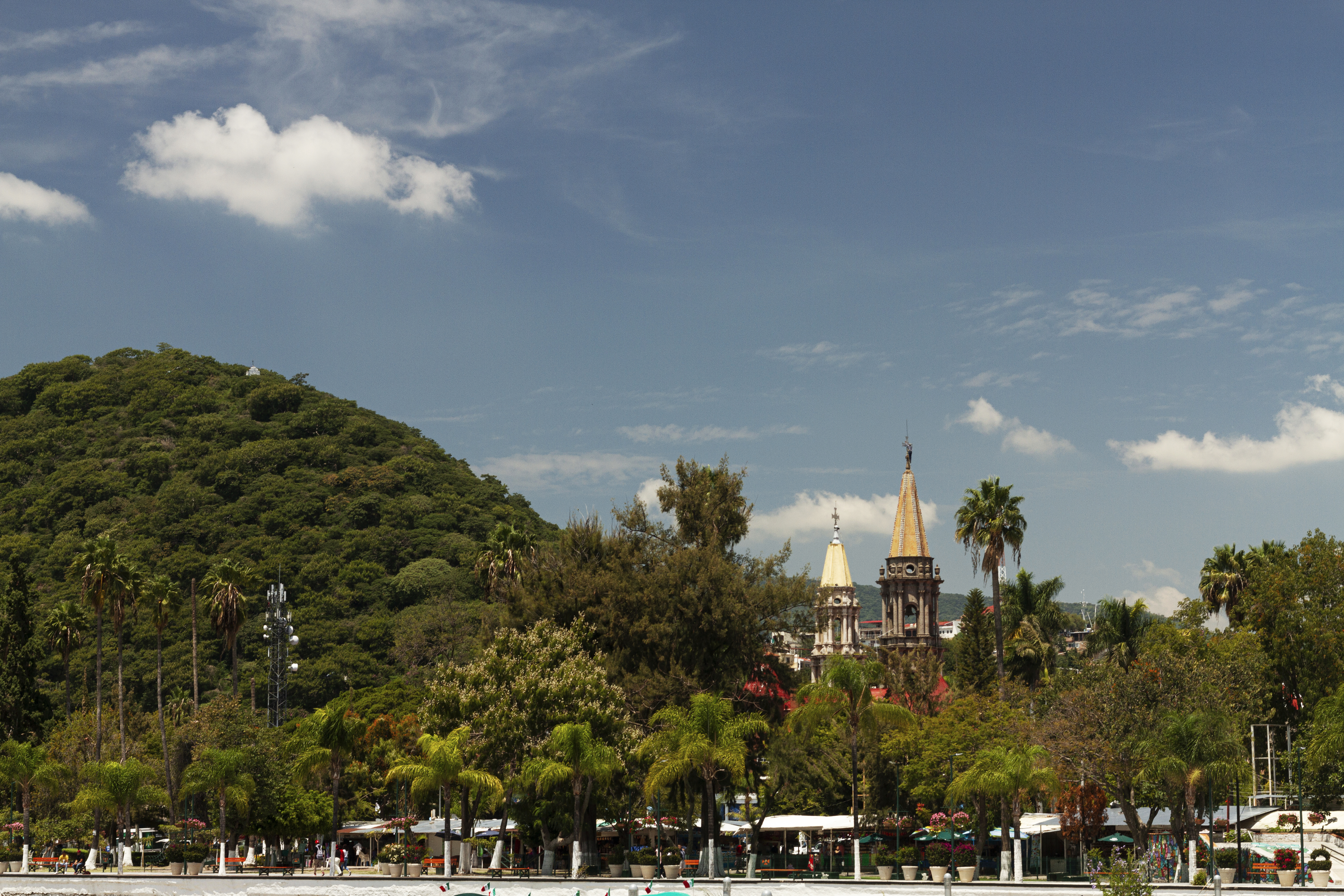
Stay Requirements for El Salvador
Holders of the El Salvador Digital Nomad Visa must comply with several conditions throughout their stay to maintain legal status. The visa is typically granted for an initial period of twelve months and can often be renewed for additional terms, depending on the applicant’s continued eligibility and compliance. To remain in good standing, digital nomads must reside primarily in El Salvador during the validity of their visa, although short trips abroad are usually permitted. Extended absences from the country could result in the visa being considered lapsed or non-renewable.
During your stay, you are expected to continue working remotely for a foreign employer or clients based outside El Salvador. Engaging in local employment or running a business that primarily serves the Salvadoran market is not permitted under this visa category. Additionally, visa holders should maintain valid private or international health insurance at all times, ensuring continuous coverage for the full duration of their stay.
It is also important to keep all documentation current, including your passport, health insurance, and proof of income. Any changes to your employment, financial status, or residency situation should be reported to the immigration authorities promptly. Compliance with these stay requirements not only secures your legal residency but also strengthens your eligibility for visa renewal if you decide to extend your stay in El Salvador.
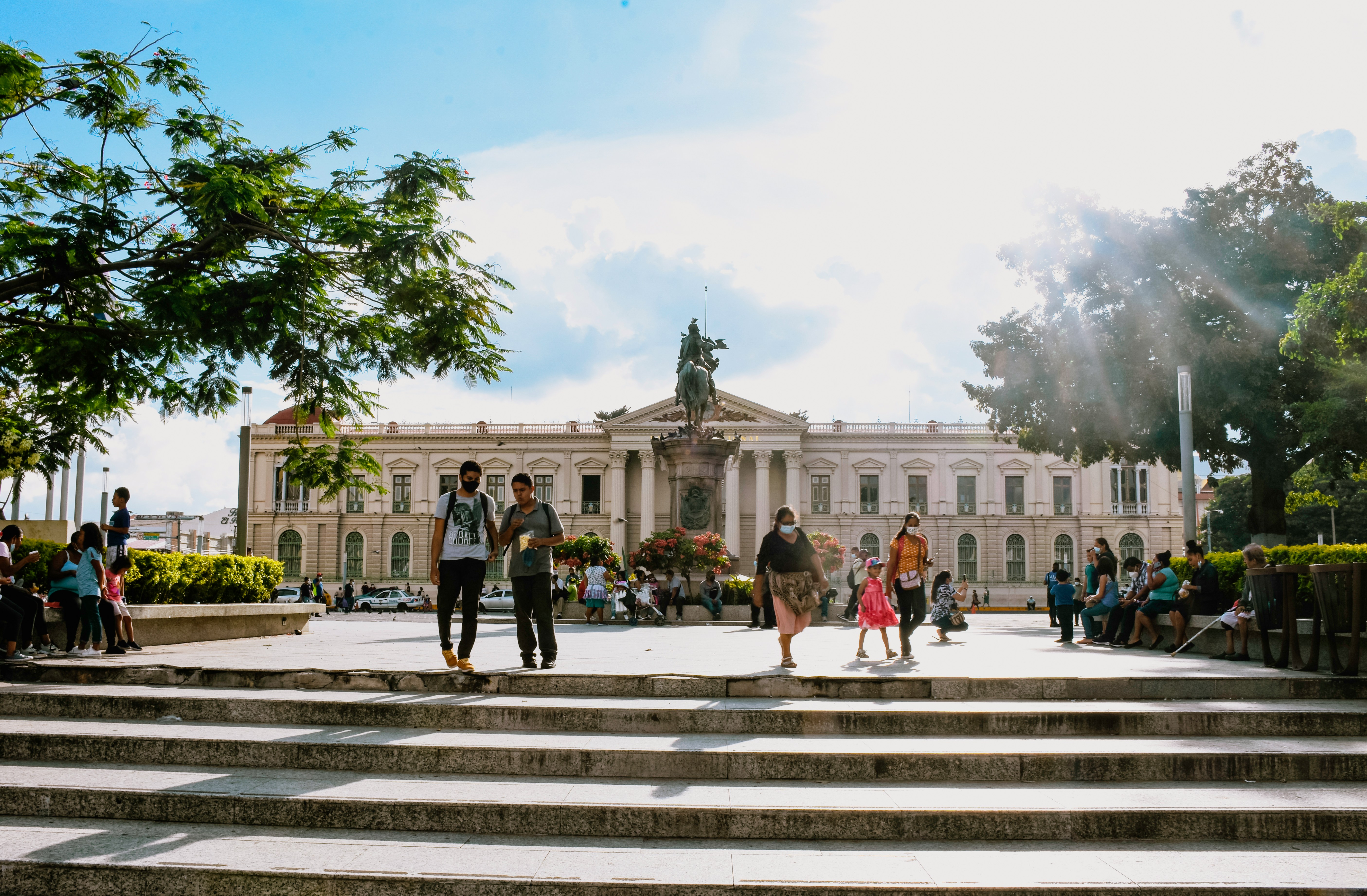
How Much Does the El Salvador Digital Nomad Visa Cost?
The cost of obtaining the El Salvador Digital Nomad Visa is relatively affordable compared to similar programs in other countries, making it an attractive option for remote workers seeking a base in Central America. While official fees may vary slightly depending on where and how you apply, most applicants can expect the total cost to include several standard charges and administrative expenses.
In general, you should budget for the following:
Visa Application Fee: Typically around USD 100–150, payable when you submit your application. This fee covers the processing of your documents by the Salvadoran immigration authorities.
Residence Card Fee: Once your visa is approved, you may need to pay an additional fee of approximately USD 50–75 for the issuance of your residence card or permit.
Document Legalization and Translation Costs: Foreign documents must often be translated into Spanish and apostilled or legalized, which can cost between USD 50–200, depending on your country of origin and the number of documents.
Health Insurance: Applicants are required to have valid private or international health insurance covering their stay in El Salvador. Depending on your provider and coverage level, this may cost USD 50–150 per month.
Additional Costs: Minor administrative expenses, such as notary fees, courier services, or criminal background checks, may add another USD 50–100.
Altogether, applicants should anticipate spending approximately USD 250–500 in total to secure the El Salvador Digital Nomad Visa, excluding ongoing expenses like health insurance. These costs make El Salvador one of the more budget-friendly destinations for digital nomads, offering a balance of affordability, legal security, and lifestyle value.
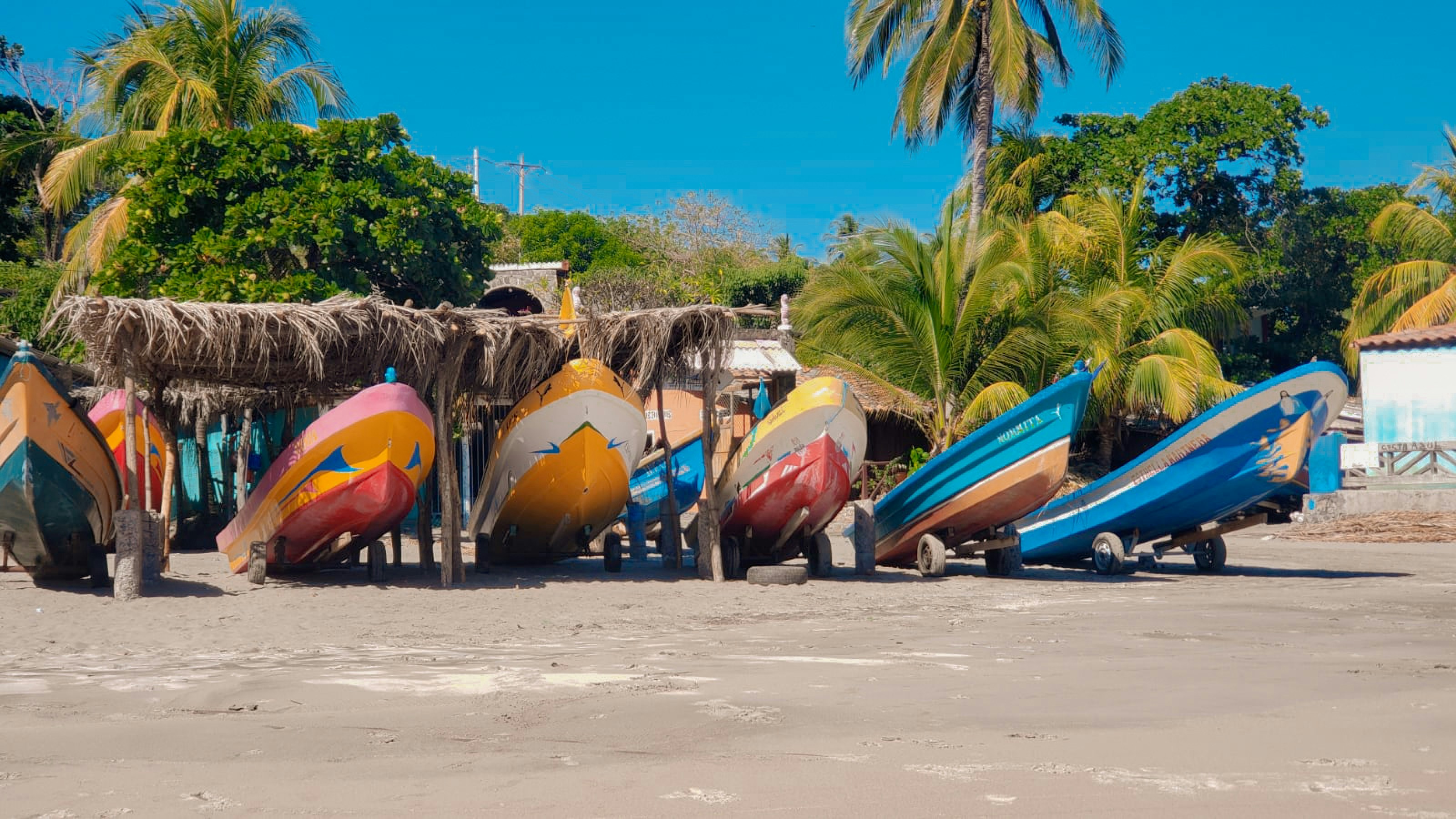
Taxes for People With an El Salvador Digital Nomad Visa
One of the main advantages of the El Salvador Digital Nomad Visa is its favorable tax treatment for remote workers. The visa is specifically designed for individuals who earn income from foreign sources, meaning your salary, freelance income, or business revenue comes from outside El Salvador. As long as you meet that condition and do not work for a Salvadoran employer or sell products or services to the local market, your foreign-sourced income is not subject to Salvadoran income tax.
This exemption makes the program especially appealing to digital nomads, entrepreneurs, and remote employees seeking a tax-efficient base in Central America. In practice, you’ll continue paying taxes only in your country of tax residence, not in El Salvador, provided your income is generated abroad and your stay complies with immigration requirements.
However, it’s important to note that any income earned within El Salvador, such as offering local services, employment with a Salvadoran company, or running a business targeting Salvadoran customers, would be considered local income and therefore taxable under Salvadoran law.
Digital nomads are also encouraged to maintain proper documentation of their income sources to demonstrate that their earnings come from foreign clients or employers. While El Salvador does not currently impose wealth, inheritance, or worldwide income taxes, you should always consult with an international tax advisor to ensure compliance with the tax laws of your home country. This is especially true if you spend extended periods abroad or change your tax residency status.
In short, El Salvador offers a simple and tax-friendly system for remote workers who earn income overseas, making it one of the most attractive destinations for digital nomads seeking both legal stability and financial efficiency.
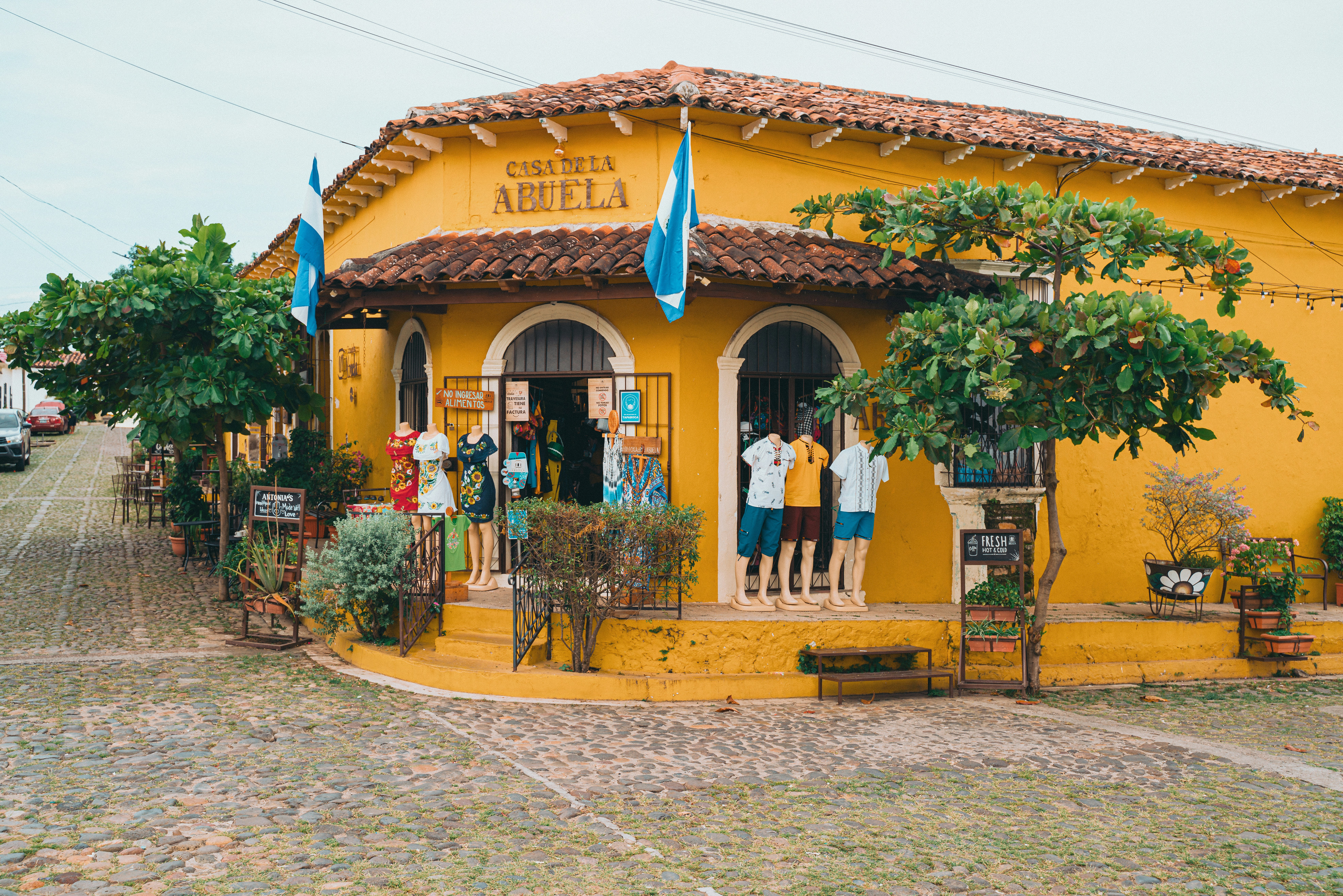
Living in El Salvador with the Digital Nomad Visa
Living in El Salvador under the Digital Nomad Visa offers a unique blend of comfort, adventure, and affordability. The country combines natural beauty, from pristine Pacific beaches and lush volcano trails to colorful colonial towns, with a growing digital infrastructure that makes it easier than ever to work remotely. Fast internet, modern coworking spaces in San Salvador, and a welcoming local culture have helped the country gain popularity among remote workers. English is widely spoken in major cities, and the U.S. dollar is the official currency, which simplifies daily expenses and transactions for foreign residents.
For many digital nomads, the cost of living is one of El Salvador’s biggest draws. Monthly rent for modern apartments or beachfront accommodations is significantly lower than in North America or Europe, and dining, transportation, and entertainment are all reasonably priced. The country’s small size means that weekend getaways to surf towns like El Tunco or mountain escapes like Juayúa are just a short drive away. Combined with its warm climate and rich cultural heritage, El Salvador offers a balanced lifestyle where work and leisure coexist effortlessly, making it a rising star on the global digital nomad map.
Best Cities to Live in El Salvador
Choosing the right city depends on your work needs, lifestyle preferences, and whether you prefer urban energy, cultural charm, or a relaxed coastal vibe.
San Salvador
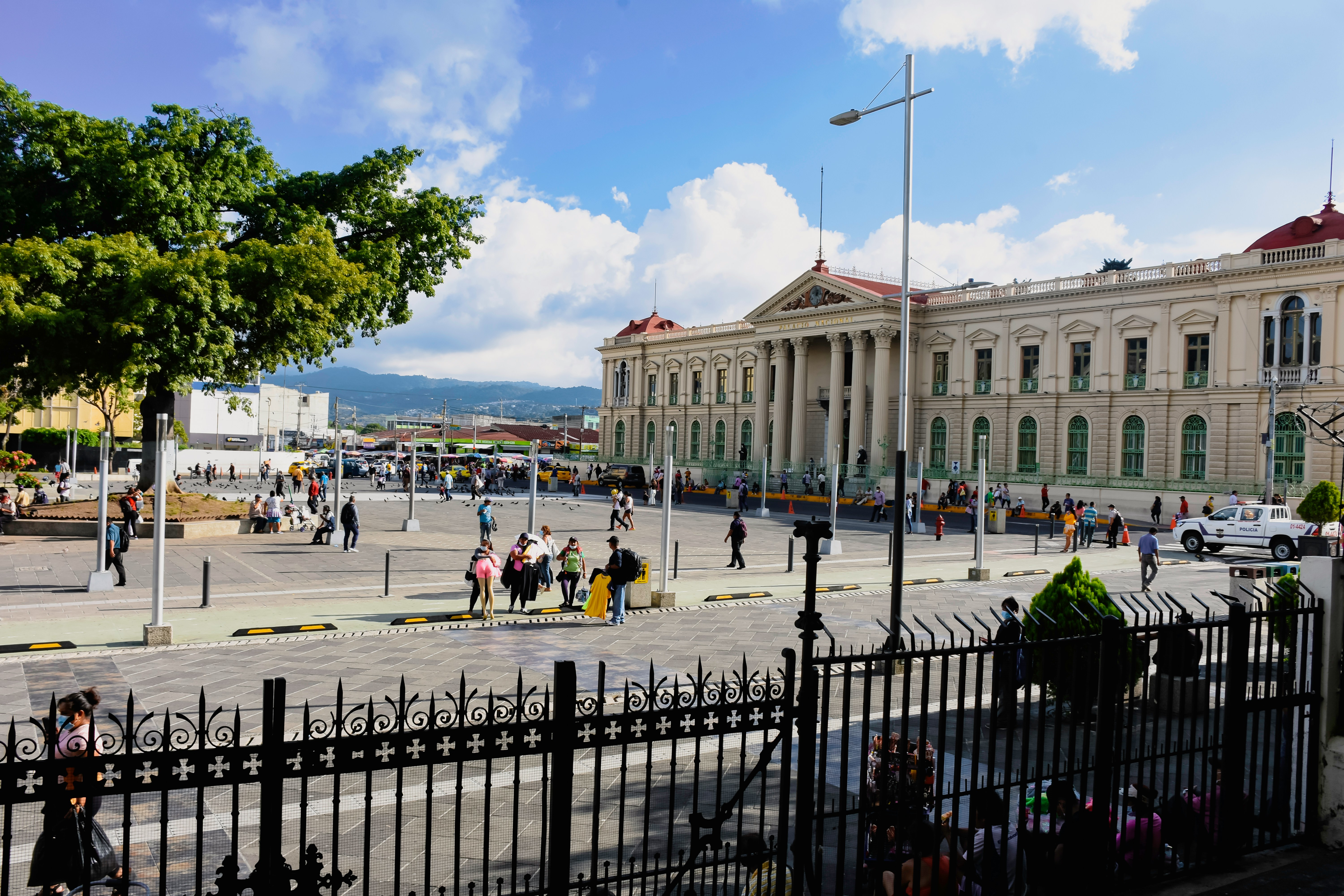
San Salvador, the nation’s capital, is the hub for remote workers seeking urban convenience with modern amenities. The city offers a wide selection of coworking spaces, reliable high-speed internet, and a variety of restaurants, cafes, and nightlife options. Expats and digital nomads often appreciate the mix of cultural attractions, including museums, theaters, and historical landmarks, alongside easy access to nearby mountains for weekend hikes. While the city is bustling, it provides an ideal base for those who want a balance between professional productivity and urban living.
Santa Ana
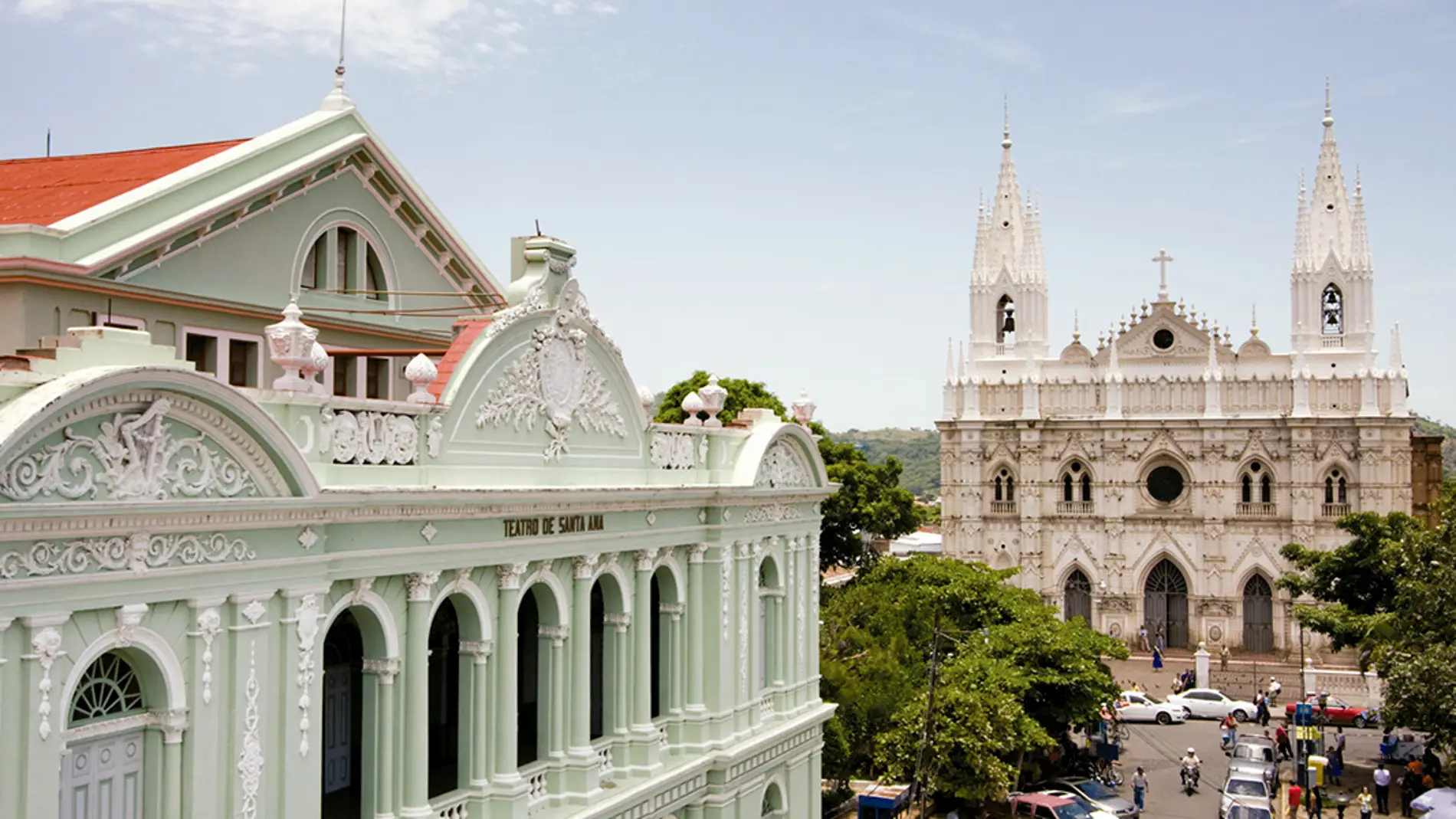
Santa Ana, El Salvador’s second-largest city, is a charming blend of colonial architecture and modern infrastructure. Known for its historic center, colorful markets, and scenic views of nearby volcanoes, it offers a slower pace than the capital while still providing essential services for remote work. Santa Ana has a growing community of digital nomads attracted by its affordability, friendly locals, and access to both cultural experiences and natural attractions, making it an appealing alternative for those looking for a more relaxed lifestyle.
La Libertad
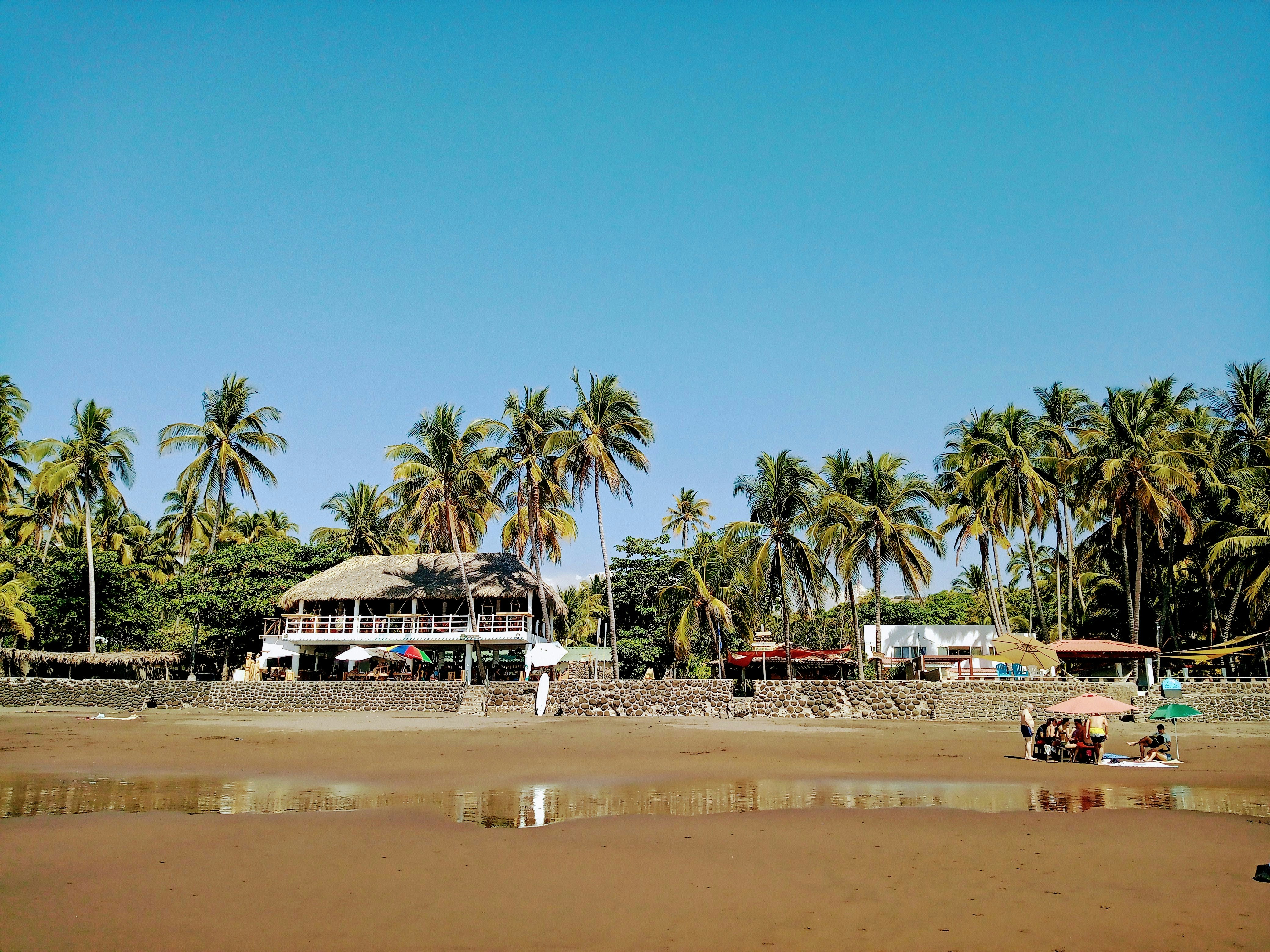
La Libertad is the go-to destination for digital nomads who prioritize a coastal lifestyle and surfing culture. Located along El Salvador’s Pacific coast, the city features beautiful beaches, surf breaks suitable for all levels, and a small but growing expat community. While smaller and quieter than San Salvador or Santa Ana, La Libertad provides the perfect combination of work-life balance. It offers opportunities to work remotely while enjoying the outdoors, beachfront cafés, and a laid-back coastal vibe that defines El Salvador’s surf towns.
Cost of Living
The official currency of El Salvador is the United States Dollar (USD). 1 USD = $1 USD.
The average net monthly salary in El Salvador is around $415 USD.
Here’s a rundown of what you should expect to pay in different cities:
San Salvador
Rent (1 bedroom in city center) – $800 per month
Rent (3 bedrooms outside city center) – $1,000 per month
Basic Utilities – $106 per month
Wi‑Fi – $42 per month
Public Transport – $0.50 one‑way (approx)
Groceries (2 people) – $350‑$450 per month
Santa Ana
Rent (1 bedroom in city center) – $270 per month
Rent (3 bedrooms outside city center) – $300 per month
Basic Utilities – $35 per month
Wi‑Fi – $44 per month
Public Transport – $0.35 one‑way (approx)
Groceries (2 people) – $225‑$425 per month (approx)
La Libertad
Rent (1 bedroom in city center) – $400 per month
Rent (3 bedrooms outside city center) – $500‑600 per month
Basic Utilities – $30 per month
Wi‑Fi – $68 per month
Public Transport – $0.50 one‑way (approx)
Groceries (2 people) – $220‑$480 per month (approx)
FAQs
Who is eligible for the El Salvador Digital Nomad Visa?
The visa is available to remote workers, freelancers, and entrepreneurs who earn income from foreign sources. Applicants must have a valid passport, proof of stable income above the required threshold, and private health insurance covering their stay in El Salvador.
How long is the El Salvador Digital Nomad Visa valid?
The visa is generally issued for an initial period of 12 months. It can often be renewed for additional periods, up to a total stay of approximately four years, provided the applicant continues to meet the eligibility requirements.
Can I work for a Salvadoran company with this visa?
No. The Digital Nomad Visa allows you to work remotely for companies or clients located outside El Salvador. Engaging in local employment or running a business targeting Salvadoran clients is not permitted under this visa.
Do I have to pay taxes in El Salvador on my foreign income?
Foreign-sourced income is generally exempt from Salvadoran income tax under the Digital Nomad Visa, as long as the work is performed remotely and not for local Salvadoran businesses. Applicants should still comply with tax obligations in their country of residence.
Can I bring my family with me on this visa?
Yes. In many cases, spouses and dependent children can accompany the primary visa holder. Each dependent may require additional documentation, such as birth or marriage certificates, and must be included in the application process.
Author
Nadia Dardón is a content creator from Guatemala. She has worked fully remotely for the past six years as a copywriter, editor, and content creator, working for different industries. She started her digital nomad journey in 2022 and currently lives as an expat in Spain.

